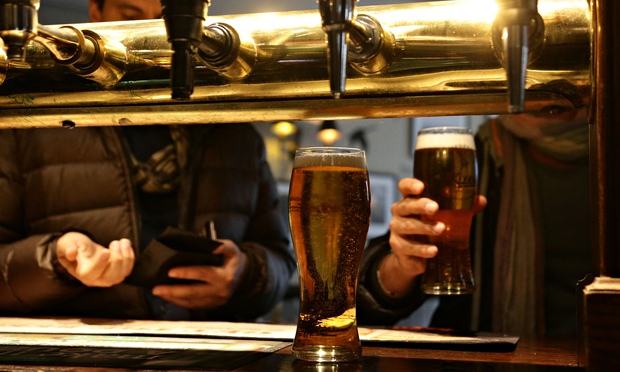Franchising, retail, business

03/12/2014
ONS survey finds households in 2013 spend less on drink, cigarettes and going out, and more on housing costs
British households are spending less on eating out, hotels, alcohol and smoking, according to the annual official survey of family budgets, which also reveals how rent, gas and electricity are taking up an ever larger proportion of spending.
Although spending rose last year compared with the previous one, much of the increase was taken up by rent payments as the property boom ate into household expenditure, the Office for National Statistics figures show.
As rising housing costs exposed the consequences of failing to get on the property ladder, the ONS also found disparities between the lowest and highest earners – with the richest 10% spending three times as much on food as the bottom 10%.
Total average spending by families in 2013 was £517.30 a week, an increase from £501 the year before, the ONS said, but remains substantially below the 2006 peak of £539.80, and is now lower than average spending at the end of the 1990s. All figures are adjusted for inflation.
The ONS said 35% of households were renting last year, compared with 29% in 2006, and the average rent was a net £92.10 a week, after taking account of housing benefit. Food costs fell slightly to £58.80 a week, and are now down by a tenth in real terms over the past decade. Spending on alcohol, cigarettes and narcotics has plunged from £18.20 a week at the start of the century to £12 in 2013.
But behind the averages there are huge variations between income groups. The highest-earning 10% of households spent on average £1,119.50 a week, or more than six times the £189.80 weekly spend by households ranked in the bottom tenth.
The figures also reveal how the rich spend their money. While the richest 10% pay not much more than the poorest to cover gas and electricity, they fork out three times as much on food, eight times as much on wine and twelve times as much on cars. But spending on cigarettes is almost identical; the poorest 10% spend £2.40 a week on tobacco, compared with £2.80 spent by the richest.
Austerity-hit Britons are choosing to stay in, with fewer trips to restaurants and weekends away, while splashing out more on home entertainment. Spending on TV packages, games and gardening rose, while the number of families connected to the internet has hit almost saturation point. The ONS said 98% of households with two adults and two children were now online. By contrast only a quarter of pensioners living alone have a computer.
But holidays remain sacrosanct, with spending on package trips abroad holding up despite pressure on household budgets. The ONS said the average household spent £1,092 a year on package holidays, with the numbers taking an ocean cruise up again last year, rising 1.5%.
Overall expenditure on restaurants and hotels fell to £40.40 a week, compared with £48.50 in 2001, while spending on recreation and culture rose in the same period from £53.80 to £63.90 – a figure including spending on items such as Sky and Netflix as well as cinema and theatre.
There was a surge in car-related spending, despite a fall in the petrol price. The ONS said the rise was largely due to households buying new cars again after years of deferring a purchase during the recession.
Despite the capital having the highest earners, for the first time the south-east eclipsed London as the region with the biggest spenders – with £585.40 average weekly spend versus £579.60. The lowest spending was in north-east England (£424.60), Yorkshire and Humber (£431.10) and Wales (£438.80).
Londoners spend by far the most of any regional group on housing and rent – twice as high as the national average – while people in the south-east spend most on transport, with commuting costs taking up a significant proportion of spending.
Fonte:http://www.theguardian.com/money/2014/dec/02/british-households-spend-less-entertainment-bills-rent-survey